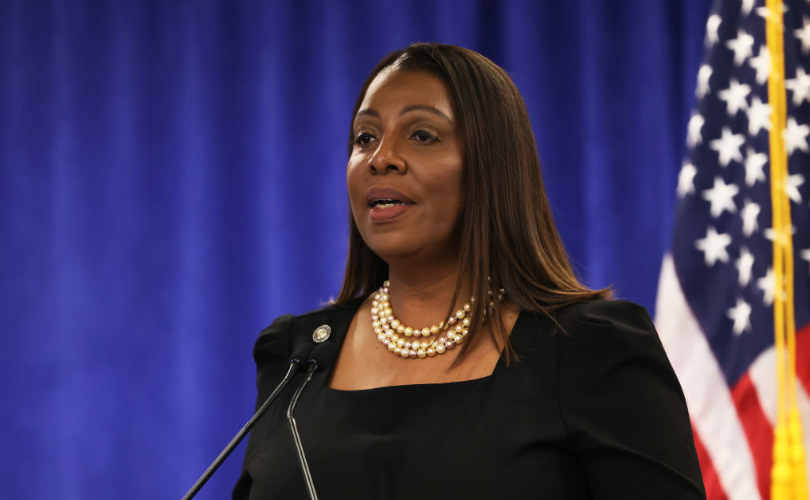(LifeSiteNews) — A proposed constitutional amendment to establish a “right” to abortion-on-demand and gender “transitioning” procedures in New York is on hold following a ruling that the state failed to follow the proper procedure to place it on the November ballot, though officials intend to appeal.
The so-called New York Equal Protection of Law Amendment would amend the New York Constitution to state that “[n]o person shall, because of race, color, ethnicity, national origin, age, disability, creed, or religion, or sex, including sexual orientation, gender identity, gender expression, pregnancy, pregnancy outcomes, and reproductive healthcare and autonomy, be subjected to any discrimination in his or her their civil rights by any other person or by any firm, corporation, or institution, or by the state or any agency or subdivision of the state pursuant to law.”
The language, which Republican state Sen. George Borrello called “very vague” and “very broad,” is expected to be interpreted by courts as preempting any meaningful laws limiting or regulating abortion or “sex reassignment,” even for minors.
The amendment was first introduced and approved by both chambers of the state legislature in July 2022, then legislatively approved a second time in January 2023, as required by the state constitution before being referred for this year’s ballot. However, Republican state Assemblywoman Marjorie Byrnes filed a lawsuit arguing that lawmakers had voted before the state attorney general’s office took the requisite twenty days to render an opinion on its compatibility with the rest of the constitution.
Now, Politico reports, New York Supreme Court Justice Daniel Doyle has agreed with Byrnes, removing the amendment from the ballot. “‘Substantial’ compliance is not compliance, and this Court cannot condone actions taken by the Legislature in derogation of the expressed will of the People,” he said, rebuking Democrats’ argument.
READ: New York bishops must not be silent on extreme pro-abortion, pro-LGBT ‘Equality Amendment’
“The constitution is the supreme will of the people,” he added. “This court cannot condone the actions taken by the Legislature in derogation of the expressed will of the people. The Legislature’s vote … prior to receiving the opinion of the attorney general frustrated the deliberative process intended by the people.”
“Once again the legislature and Governor Hochul are found to have violated the state constitution,” declared New York Republican Party Chair Ed Cox. “In their rush to pass this amendment, the Legislature never held a single hearing on the proposal, never consulted with outside constitutional experts, and falsely asserted this amendment was necessary to protect abortion rights in the state.”
But pro-lifers’ victory may be short-lived, as New York Attorney General Letitia James confirmed she would be appealing the ruling to the left-wing Court of Appeals.
Fourteen states currently ban all or most abortions. But the abortion lobby is working feverishly to cancel out those deterrent effects by deregulated interstate distribution of abortion pills, legal protection and financial support of interstate abortion travel, constructing new abortion facilities near borders shared by pro-life and pro-abortion states, making liberal states sanctuaries for those who want to evade or violate the laws of more pro-life neighbors, and enshrining abortion “rights” in state constitutions.
Since 2022, the abortion lobby has had great success with such amendments, which if enacted effectively insulate abortion-on-demand from future state legislation and can only be overridden by a federal abortion ban, prompting pro-life conversations about the need for new strategies to protect life at the ballot box. Pro-lifers have either failed to enact pro-life amendments or stop pro-abortion ones in California, Kentucky, Michigan, Montana, Vermont, and Ohio. This year there are two other abortion-related ballot initiatives slated for the November elections, with as many as 12 more that could be approved for consideration as well.

